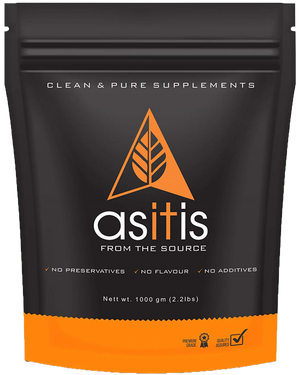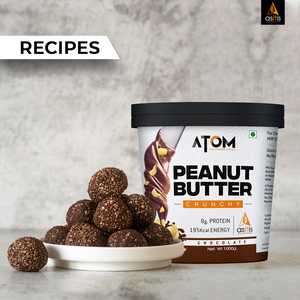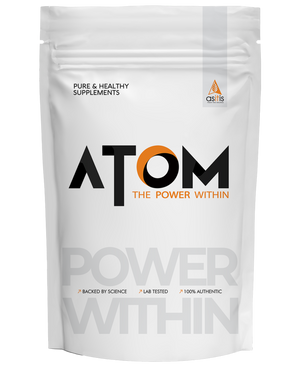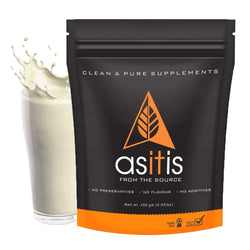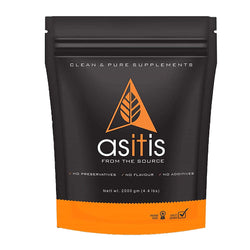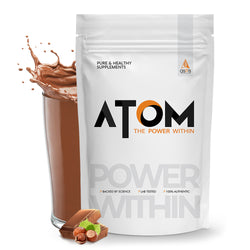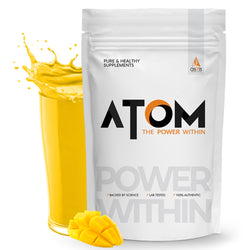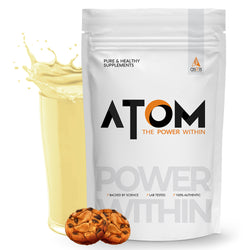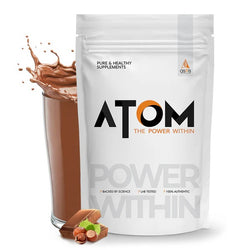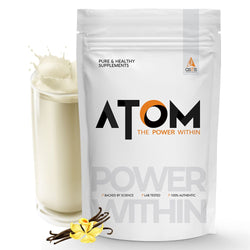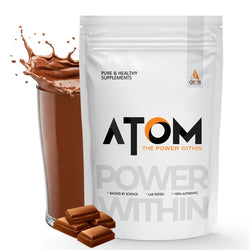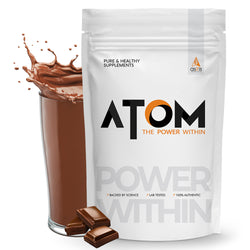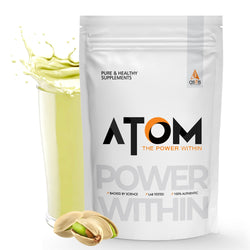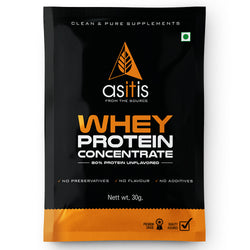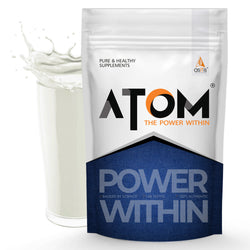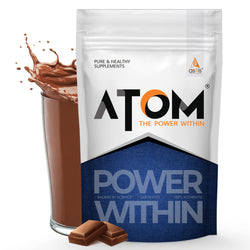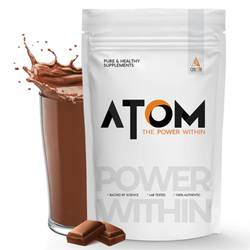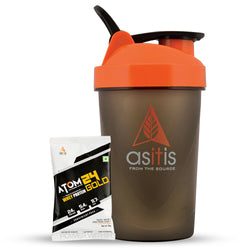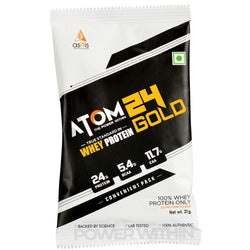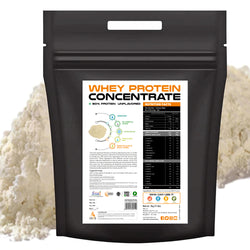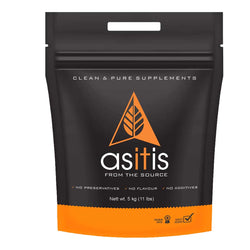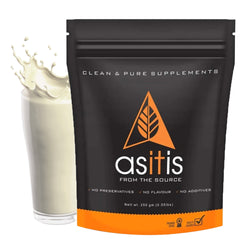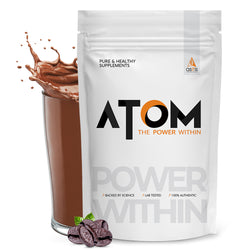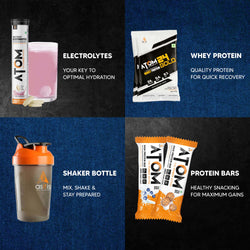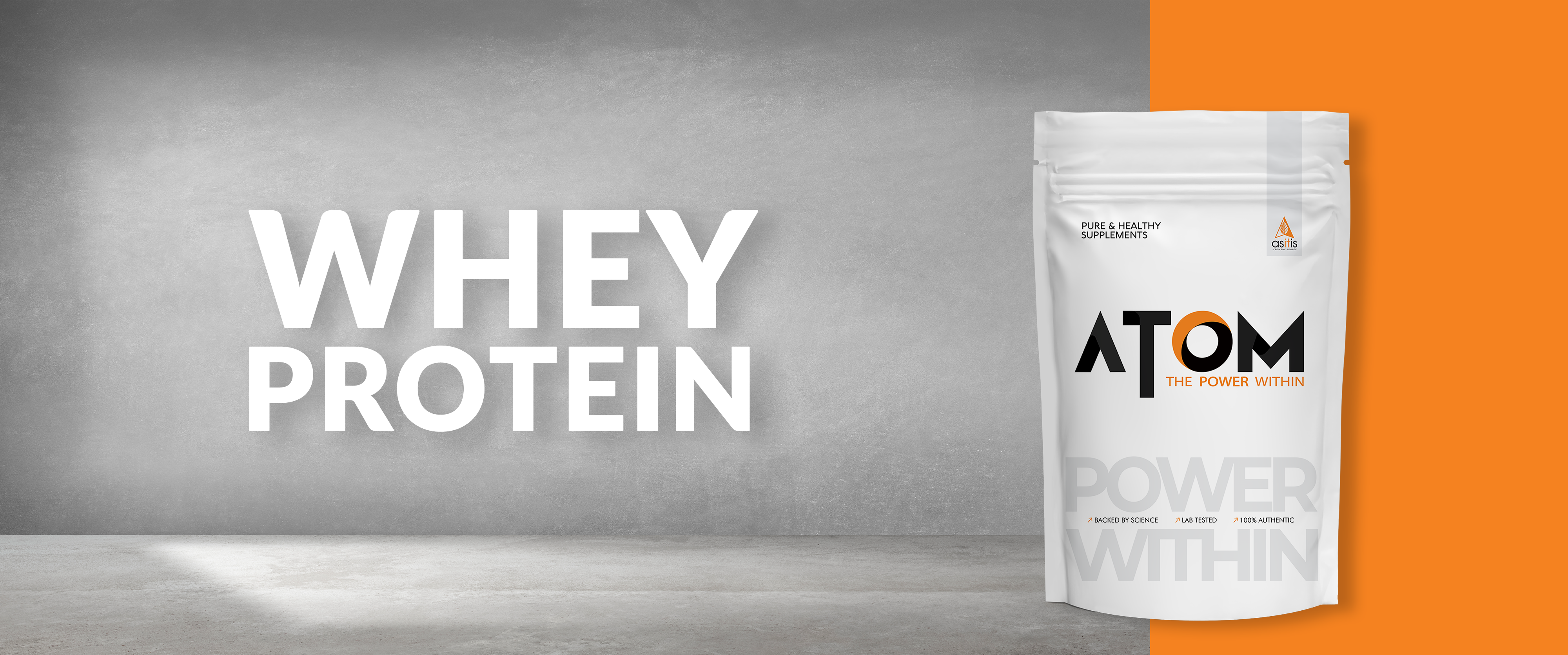
Whey Protein
AS-IT-IS Nutrition ATOM Whey Protein is India's best Whey that's designed to be a game-changer for anyone looking to build muscle, improve recovery time, and boost overall performance in the gym. ATOM Whey Protein stands out with its high protein content per serving, clean, and minimal ingredient list that is free from unnecessary additives or fillers. This means you can trust that you’re getting a pure and potent protein source with every scoop.
Benefits of Whey Protein For Athletic Performance
Filters
AS-IT-IS Nutrition ATOM Whey Protein is India's best Whey that's designed to be a game-changer for anyone looking to build muscle, improve recovery time, and boost overall performance in the gym. ATOM Whey Protein stands out with its high protein content per serving, clean, and minimal ingredient list that is free from unnecessary additives or fillers. This means you can trust that you’re getting a pure and potent protein source with every scoop.
Benefits of Whey Protein For Athletic Performance
ATOM Whey Protein | USA Labdoor ...
ATOM Whey Protein BOOSTS YOUR PERFORMANCE TO NEXT LEVEL: When compared to others, Atom Whey protein has greater bioavailability, solubility, an...
View full detailsAS-IT-IS Whey Protein Concentrat...
WHEY PROTEIN CONCENTRATE HIGH PROTEIN, ZERO AMINO SPIKED: The DOPE-free, soy-free, gluten-free Whey provides a solid dose of 24g protein, 5.4...
View full detailsAS-IT-IS Whey Protein Isolate 90...
BUY RAW WHEY PROTEIN ISOLATE 100% PURE, ZERO AMINO SPIKED: AS-IT-IS Whey Protein Isolate is a 100% vegetarian, pure protein that boasts a sing...
View full detailsATOM Whey Protein Isolate Ultra-...
Whey Protein Isolate - 30g Protein 30g FAST ABSORBING PROTEIN: ATOM Whey Protein Isolate has high biological value, it is low in carbs, fat, calo...
View full detailsATOM Plant Protein | 25g Protein...
ATOM Plant Protein PACKED WITH 25G PROTEIN PER SERVING : The dairy-free alternative gives super stimulus to your muscles in the same way as ...
View full detailsATOM Beginners Whey Protein | Ac...
Beginners Whey Protein OPTIMIZES PROTEIN SYNTHESIS: Beginners with diverse fitness goals will benefit from ATOM Beginners Whey that is speciall...
View full detailsAS-IT-IS ATOM ISO Whey Gold | 28...
ISO Whey Gold Protein PURE PROTEIN PUNCH: ISO Whey Gold delivers a high-quality protein blend with all the essential amino acids, including BCA...
View full detailsAS-IT-IS ATOM Performance Whey ...
ATOM Performance Whey Protein FAST-ACTING/QUICK-RELEASE PROTEIN: ATOM Performance Whey comprises a blend of the best anabolic proteins, Whey Pro...
View full detailsWhey Protein 30g Sachet
100% PURE, ZERO AMINO SPIKED: AS-IT-IS Whey Protein Concentrate is a 100% vegetarian, lab-door certified Whey that holds an authentic single-ingr...
View full detailsAS-IT-IS Nutrition ATOM PWR Whey...
ATOM Nitro Whey Protein with Cre...
ATOM 24 GOLD Whey Protein Single...
24 GOLD Whey Protein Sachet CONVENIENT SINGLE SERVING PACKAGE: ATOM 24 Gold Whey Protein is a clean, delicious, convenient, easy to digest, and h...
View full detailsAS-IT-IS Whey Protein Concentrat...
Whey Protein Concentrate WHEY PROTEIN PROMOTES MUSCLE BUILDING: Gain lean muscles like never before, with AS-IT-IS Nutrition Whey Protein. I...
View full detailsAS-IT-IS Whey Protein Concentrat...
AS-IT-IS Whey Protein Concentrate WHEY PROTEIN PROMOTES MUSCLE BUILDING: Gain lean muscles like never before, with AS-IT-IS Nutrition Whey Prot...
View full detailsATOM Plant Protein Complex I Cli...
AS EFFECTIVE AS WHEY PROTEIN: ATOM Plant protein complex, packed with 26g protein, 5.8g BCAA, 11.6g EAA, and 300mg ashwagandha is a dairy-free, la...
View full detailsAS-IT-IS ATOM Passport to Fitnes...
BEGINNERS’ NUTRITION SUPPORT: AS-IT-IS Nutrition ATOM Passport to Fitness kit includes a well-thought-out list of basic fitness and nutrition sup...
View full details
